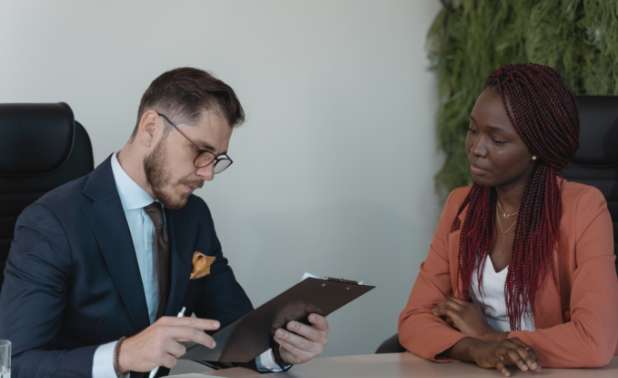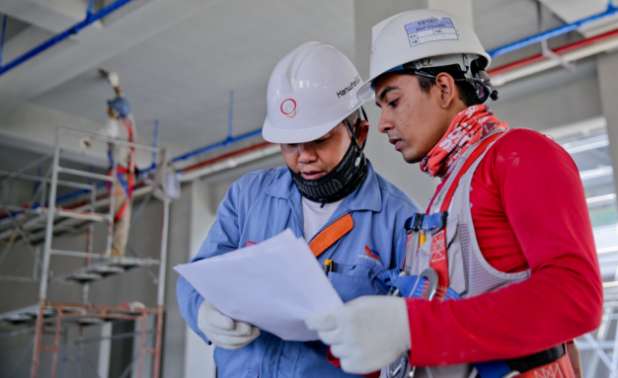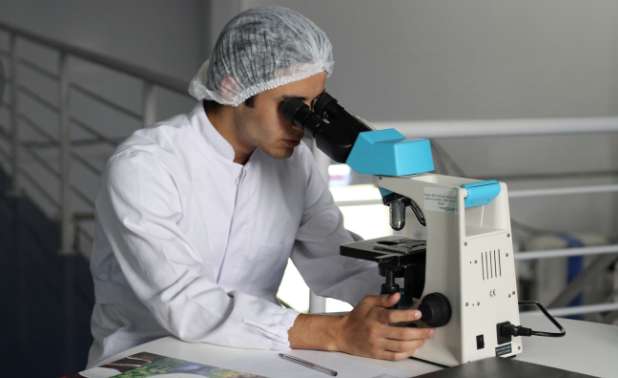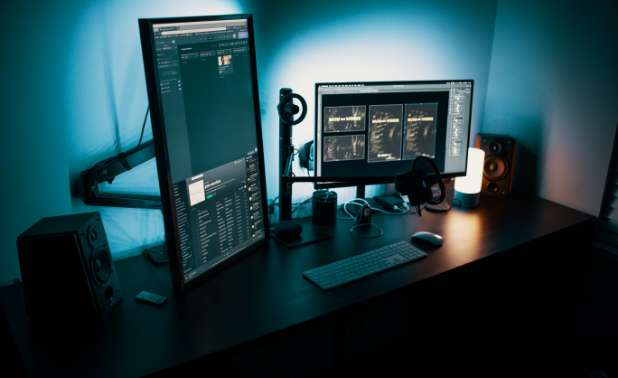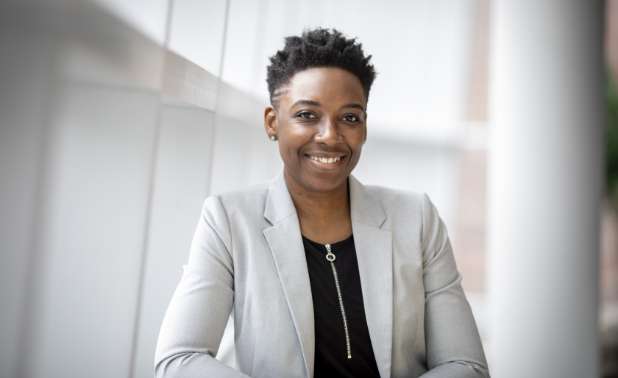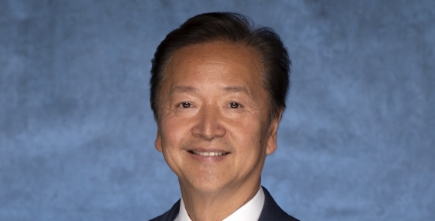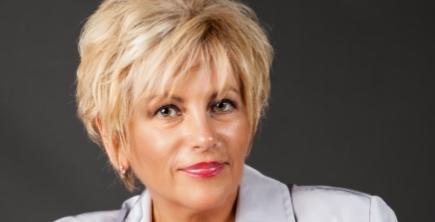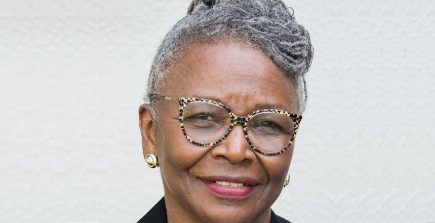Rahdiah Barnes:
Welcome to Pride Global’s first miniseries for But First, People, presented in partnership with the National Minority Supplier Development Council. My name is Rahdiah Barnes, and I’ll be your host. As proud partners of the NMSDC, the entire Pride Global team is thrilled to be bringing you this podcast. We’ll be meeting with other Corporate Plus members and sponsors to learn how being minority-owned companies has shaped their business strategies, the relationship between sponsorship and membership, and much, much more. Join us each month to listen and learn from their stories.
Rahdiah Barnes:
I’m excited to sit down with our first minority business enterprise, Tronex International, Inc., and its founder and CEO, Donald L. Chu. As an entrepreneur, corporate leader, and philanthropist, Donald founded the New Jersey-based global healthcare products company in response to the AIDS crisis in 1989. Tronex leapt into action, designing, manufacturing, and marketing head-to-toe personal protective equipment, and they’ve been a leader in the field ever since. Donald pursues his passion for philanthropy by serving and donating to a number of meaningful causes, from enriching children’s education and funding hunger relief programs to environmental initiatives and worldwide medical relief, among many others. Welcome to the show, Donald!
Rahdiah Barnes:
Welcome, Mr. Chu, to our Corporate Plus podcast. I am so excited to have you on as a guest. Thank you so much for joining us and participating. I have been told that you are one of the—I don’t want to say one of the best, but you are a great member of the Corporate Plus program. Your business is something to be admired. You are someone to be admired! You have created such a great business. I did a little research on you; I’m really, really impressed. Could you tell us a little bit about your background, and how you started your business, and how you got started?
Donald Chu:
Rahdiah, thank you very much for the wonderful opportunity to share about who we are and how we came to be here today. It’s a tremendous honor. I grew up in a small country, a town called Geneva, Switzerland.
Rahdiah Barnes:
Oh, wow.
Donald Chu:
But in those days, everybody was somewhat similar, except me; I was the only one that was so different. But I never thought I was different. It’s only later on in life, we hear about diversity and so forth.
Rahdiah Barnes:
It’s so important. Diversity is more important, I think, than people really understand, and the impact that diversity makes—not only on individuals in organizations, but actually the organization itself.
Donald Chu:
Exactly. I think it’s extremely important, because our world is diverse, and how do we work together?
Rahdiah Barnes:
Most definitely. So, I’ve been told that you’re a pretty smart guy. You attended an elite university in the United States; so, you left Geneva, and you came over to United States to go to school. What school did you go to?
Donald Chu:
I went to Northeastern University in Boston and studied business management. Really wasn’t quite sure how I’m going to use my degree, but I always thought about how I can positively impact, from a business point of view.
Rahdiah Barnes:
Most definitely. And your company, Tronex, does make an impact. I am going to start calling you Mr. PPE. Can you tell us about Tronex?
Donald Chu:
Yes. So, we started about 33 years ago, and the idea was one product, and that product was a latex exam glove—small, medium, large. And this is as a result—as actually, at the beginning of the AIDS epidemic in 1987, where a dentist contracted AIDS. And that is when hand protection became a mandatory product, especially in healthcare. And from healthcare it developed into the food industry and hospitality. That’s how we started in 1989.
Rahdiah Barnes:
Amazing. So it started with one glove, and then it progressed and grew, and now you produce a lot of the PPE that we see today. Does that include masks and—
Donald Chu:
Right. Yeah, so we have over a thousand SKUs of products, and this is from the face mask to isolation gowns, covers, shoe cover, to full heads, and so forth, lab coats. And these are used in healthcare primarily, but also non-healthcare. And we can see in food service and hospitality, most people are using the PPE products.
Rahdiah Barnes:
That’s great. So, when you started this business—I don’t know if anyone who starts a business imagines that the growth would be what it is now. Did you think that your business would grow? You are a minority business owner, you’re in this space. Did you imagine that your business would go from one glove to this huge company?
Donald Chu:
No, actually in the beginning, wasn’t so much about reaching a scale, was really about how can we be of service. The card that was given to us was one particular product, and we took this product and ran with it. So, it is more like, just do the right things every day; have the confidence and the faith that we are doing the right things that can help others. So as a result, new opportunity arose from one product to other products. We were able to prove that we can do a great job with our customers and prospects.
Rahdiah Barnes:
Wonderful. Taking advantage of all those opportunities, that is so important.
Donald Chu:
Right, right.
Rahdiah Barnes:
You are certified by the National Minority Supplier Development Council, which I think is one of the greatest organizations for minority business owners. And you are a member of the Corporate Plus program. Can you tell me how your business has benefited from being a part of this program?
Donald Chu:
Yes, certainly. The NMSDC has been truly instrumental for the growth of our company. It really is an elite diverse supplier group, and we feel tremendously privileged to be part of this elite group. And this group, have proven that they can do national and including international business for us, to have dialogue with Fortune 100 and 500 companies, while in the past we really didn’t have that many—opportunity to have even a conversation.
Rahdiah Barnes:
So, it’s helped you to open doors, make those connections that you might not have been able to do so in the past. Has there been any other benefits that you’ve seen from belonging to the program?
Donald Chu:
I think the program is wonderful, that you are amongst some of the best of the diverse companies. And really, I just admire the NMSDC Corporate Plus members, and that is some of the best of the best companies. And they are role models for society, community—wonderful people.
Rahdiah Barnes:
Great. Yeah, it is like a family. I’ve been privy to some of those calls, and it’s been so empowering to listen to the different business owners speak, give advice, kind of share best practices. I think it’s a really, really great program.
Donald Chu:
Yes. Very, very passionate. And then most of the Corporate Plus really started from nothing, like us, and then we benefited from this platform that NMSDC—kind of like a stage for us to perform at our level best. I think I see that NMSDC that really has helped companies like Tronex.
Rahdiah Barnes:
Most definitely. Now, you’ve been assigned a sponsor. I understand that everyone is assigned a sponsor in the program. Who’s your sponsor and how have you used this relationship to benefit your business?
Donald Chu:
Yes, our sponsor is Marriott International. They have helped Tronex not only to develop nationally but also internationally. We started, actually, regionally and we were able to provide wonderful, great customer care, excellent service continuously because our product—one of the most difficult is consistency in quality. And a lot of companies in our field have come and gone.
Donald Chu:
We are one of the few that are still here. And the Marriott Corporation has given us the opportunity to demonstrate that we can do a great job providing PPE, the gloves. And because they have this mentorship as well, if you are able to do well regionally, they give you an opportunity to develop nationally. And we did very well nationally. And then they say, "Why don’t you consider in Asia, to distribute in Asia?" So actually because of this Marriott relationship, we were able to distribute in Hong Kong and China.
Rahdiah Barnes:
Wow. Well, I think that’s fantastic. That’s a great benefit to having a sponsor. They really helped you with taking your business to the next level, almost. I wanted to ask you, Donald, from a supply chain perspective, there’s been a lot of talk about the kind of bottleneck, and the issue with supply chain and products, and certain services being able to reach businesses in the United States. I wanted to know if you’ve had any challenges that have been affecting your business, and has this affected your ability to include minority businesses in your supply chain?
Donald Chu:
Yes. During the COVID—naturally, we have 33 years of experience in the supply chain and the PPE business. And in PPE, what has been really disrupting was that, the geopolitical disruption in the supply chain and the manufacturing base. What used to work is not working exactly the same way. And then the manufacturing base is changing as well. So, one has to be very cognizant about your supply chain, not just in one area, but also you have to spread into other areas. In our case, not just, let’s say, China, but also Southeast Asia, which we have always been working with Southeast Asian countries.
Donald Chu:
The second part, I would say, is the biggest question I see is: how do we work together? What is the solution of working together versus confrontational? And I think that is the thing that in our business, is how do we make more friends, and how do we help each other? Not just you always want something, but how do you help each other to progress together? And for us, it has always been that idea is we are given different knowledge, experience. The idea here is how do we partake and how do we share those ideas with others? Could be diverse companies, or customer prospect, or even factories. How do we share on some of those principle of doing good business, long-term business, versus what’s the short-term deal? So, we always thought about long-term versus short-term.
Rahdiah Barnes:
Right, most definitely. And you touched on something: relationship building, networking, having a diverse network, expanding your network is so important. I think that’s important in really any aspect of your life, be it at work, professionally, personally. It’s good to have a diverse group of people around you so you could tap into those relationships and, like you said, reciprocate that. It’s not always, I need, I need, I need. It’s always good to have a give-and-take relationship. And that’s what builds strong relationships, and I’m sure a lot of the relationships that you’ve built over the years have helped you with the supply chain issue.
Donald Chu:
Yeah, I think that’s a really important point. And that’s why we say, what is our common denominator? Very good people and talented people working together. But you cannot just be a good person, but you have to have talent. Talent is something that is not given to you, it’s something you have to earn it through efforts, then you develop that talent that is useful. So when you combine a good person with a talented person, then is perfect.
Rahdiah Barnes:
That’s perfect right there. And speaking of good people, I did just a little bit of research and I saw that you do a lot of... Community impact is my passion, it’s my love. And I see that you do a lot in your community. You do a lot with education, food banks, medical—of course, with your PPE—and you also do some coastal cleanups. Could you tell us a little bit about that kind of philanthropic community work that you have gotten into?
Donald Chu:
Right. So as a child, I had the thought, and the thought was very simple, is that through enterprise, I, and we, can help others. And that idea actually carried to today, in our company. Through enterprise, we can help others, and like teachers, through teaching they can help. Artists with their art: they are positively influencing our community, our world. So, the philanthropic part is a granted for us, it is our mission that we benefit not only ourself and our families, we are benefiting others. As a result, from day one, we have many, many organizations that we support, from a community to a national to international.
Donald Chu:
And pretty much from anything to do with health, wellness—like the coastal sweep type where they pick up garbage, let’s say, from the beaches—we support with our product and donations. Anything that is constructive and positive are the things that we do. So, 150 organization, every six months we donate and donate. And we also, like the medical missions around the world, these are kind of important to us. And not just one thing; could be the McDonald House or Red Cross and even Wounded Warriors, those organizations that, if there’s a hurting, we need to find ways to heal.
Rahdiah Barnes:
I think that’s wonderful. And I really do think that that’s part of the reason why your business has been so successful. When you give back, you get back. And that’s my little personal take on things. I really admire that, and I will continue to follow the work that you do, because I was just doing a little bit of research, but I found that to be really amazing and really admirable. Thank you so much for contributing in that way. I did want to ask you, since you’ve built this wonderful business, do you have any advice for new MBEs, anybody starting out, or maybe someone who has started a business and they’re not quite sure which direction to go?
Donald Chu:
Yes, yes. First of all, the new business owner, I just want to give you a big hug first! It is a long way, it’s a long road, it’s a hard year’s road. It’s like climbing the Everest: it’s always cold, always windy, but I must assure you the view is spectacular. In face of adversity, you really need courage, and stay focused, and always naturally try your level best. In your own world, in your own life, look for breakthroughs. Don’t limit yourself. And you need to do more. The more you do it, the more you know.
Rahdiah Barnes:
Wow, that’s great. I need to write that down. That’s some good stuff. Great advice.
Donald Chu:
It’s from over the years’ experience. And that’s why I feel it’s so important. If you’re given more, it seems important to share. And it’s not so much about, we want to show off or no; no, it’s really about caring for others along the way. Including podcasts, unless we really have something that we want to say, that you can be successful. Not necessarily from Wall Street—nothing wrong with Wall Street, but we’re not that way, and probably we won’t go that way either. Because what we have, we are happy. We’re working with people we enjoy working with. Everything we do is based on long term. So our colleagues are not worried about, "Oh, are they going to be sold?" They just continue to do their level best.
Donald Chu:
I think that there’s many ways to be successful, not just one way. And I think that is the key for us. Success is not how much you make, it’s really about success. You can be a great mentor; you have a nice environment that’s conducive to everybody’s growth. Just like NMSDC and this podcast, you’re staging, you’re building a platform for others to play, to share. It’s like a theater. You build the theater, and we are the actors, and we have a great story to share. And then everybody’s story is different. There’s no big thing or small things. How we develop those stories, and how do we share those stories? So, remember, nothing’s too small. It’s very respectable.
Rahdiah Barnes:
Yeah, most definitely. Yes. And you kind of touched on a little bit of one of the last questions that I was going to ask you: why do you think it’s important to highlight small business stories or minority business owners and their stories? Why do you think doing podcasts like this or bringing attention to minority business owners, why do you think that that’s important?
Donald Chu:
Well, the important thing, like the French would say, vive la différence, is the celebration of the difference, the uniqueness of our personal contribution. During COVID, even though most of our products were allocated to the hospitals, it was more about, it really is the uniqueness of our contribution. And everything is important. Start from something; small ideas can be big ideas. And I think everybody has something good to say, and we believe that we can learn, we should continue to learn.
Rahdiah Barnes:
Most definitely. And I also believe highlighting businesses, where someone could look at you, for instance, and your story and say, "You know what? I could do that too. He did it. I can do it. He’s motivating me."
Donald Chu:
Right, right. Yes, absolutely. If we can do it. We started with one product: a latex exam glove—small, medium, large. So surround yourself with great people, listen to great stories, be inspired by ideas and the can-do attitude and you will do it because you’re encouraged to, not to give up. All this, part of the colors around us, and I think this type of podcast and NMSDC are actually showcasing nice stories. And there’s a great deal of value and great substance because we went through hardship. Nothing was a handout. Everything had to be earned, day in, day out. That’s why we are looking at from a much longer—because it’s just going to take time. And some of our customers, took us 25 years to get them.
Rahdiah Barnes:
Oh, wonderful. Customer loyalty, that’s important too.
Donald Chu:
Yes. And customer loyalty. But we have to continue to earn it. That’s not easy. And for us, it’s after 33 years is a—gee, my goodness, where was I 33 years ago? And you still have to have that positive energy to say, "I can. I will continue." Not for myself, but for everybody that supports us, a customer, colleagues, supplier partners. It’s more than just one person or a few people.
Rahdiah Barnes:
It’s collective. It’s a collective effort.
Donald Chu:
Yeah, that’s right. And again, how do we work together is important.
Rahdiah Barnes:
Most important. And being part of the Corporate Plus program family, I’m sure that being amongst those great organizations and companies and leaders can only help, and can only help to, as we say, amplify your brand. I almost feel like it’s a group mentorship with everyone there together. So, I know that’s only been a benefit to everyone who’s been involved.
Donald Chu:
Yes, absolutely. It’s a big family of talent, talented people and companies. We can learn a lot, but also at the same time, we can contribute a lot, kind of like a two-way street, for lack of better analogy.
Rahdiah Barnes:
Wonderful. It has been so great speaking to you, learning from you, Donald. It’s been my pleasure to have you on the podcast. Thank you so much for joining us. Is there any parting words that you have? Anything that you wanted to say, maybe, about the program, or about your business, or about life?
Donald Chu:
Okay, a parting message. Okay. Yeah. Life is a great journey. You have to plan early in the morning. Before you know, it’s noontime, and afternoon, and evening. It’s like a blink, so use your time wisely. You’ll see—if you have faith in what you’re doing, then just keep doing it. Then you’ll see you will have lucky breaks along the way. You’ll be very surprised that you’ll be like us. If we can do it, you can do it.
Rahdiah Barnes:
I love that. That is great advice. The early bird gets the worm.
Donald Chu:
Right. There’s a lot. There’s some thinking, planning. And again, it’s a long journey. But then just build yourself strong in knowledge, again, in understanding, appreciating our diverse world. There’s so many opportunities—don’t limit yourself.
Rahdiah Barnes:
Fantastic. Donald Chu, thank you so very much. I hope that we meet in person and you can teach me a little French.
Donald Chu:
Oui!
Rahdiah Barnes:
I saw how you dropped your French in there. I appreciate you being our guest this afternoon. Thank you so much. It’s been enjoyable. And again, hope to meet you in person one day. Thank you so much.
Rahdiah Barnes:
Thank you so much to Donald Chu for joining us. We really appreciate it. And thank you to our viewers for spending some time with us. If you have any questions for Donald, Pride Global, or the NMSDC, please email us at butfirstpeople@prideglobal.com or visit us online at the nmsdc.org and prideglobal.com. Thanks again, and remember to like, share, rate, and subscribe so we’ll be sure to see you next time.


